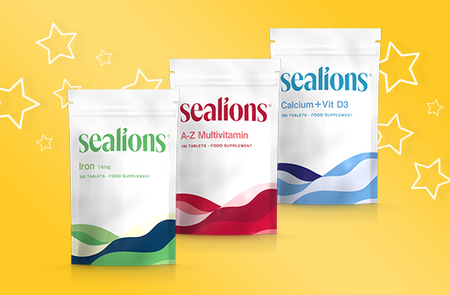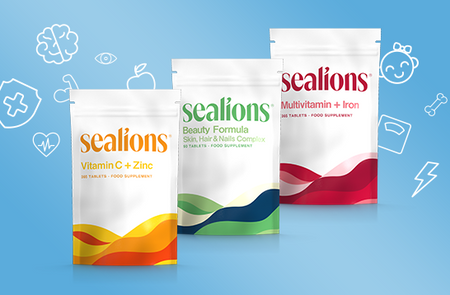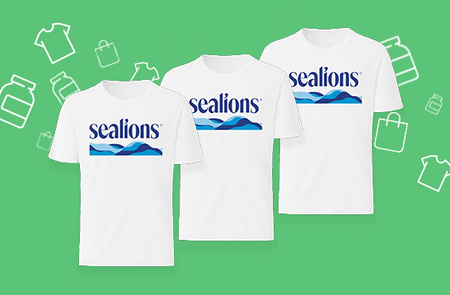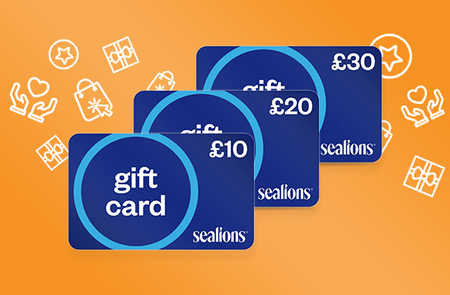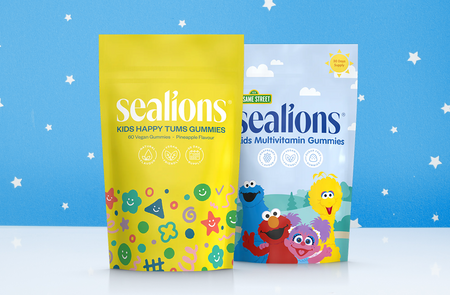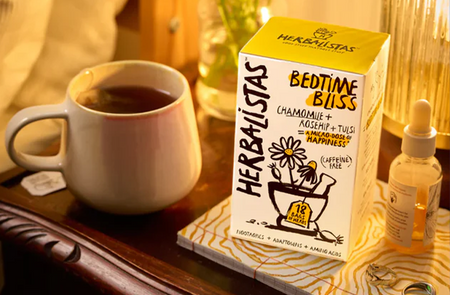
10 Signs You Might Not Be Eating Enough: Recognising the Symptoms of Malnutrition
As we shine a spotlight on Malnutrition Awareness Week, it's a great time to reflect on what "healthy eating" really means. Often, we think of balanced nutrition in terms of weight management or general wellness. But eating enough of the right nutrients is essential for keeping our bodies healthy, supporting our energy, mood, and overall wellbeing.
Malnutrition can affect anyone, and despite what many of us think, it doesn't just mean "not eating enough" - it can also mean not getting enough of the specific nutrients your body needs, regardless of how much food you're consuming. If you're noticing changes in your health or feeling a bit "off", your body could be giving you some signals that you need to up your nutritional intake. Here are ten common signs that may mean you're not eating enough:
1. Unexplained Fatigue
Have you been feeling unusually tired? Struggling to get through the day without hitting a slump? Fatigue is often the first sign that your body is undernourished. When you're not eating enough calories or getting enough key nutrients, your body doesn't have the fuel it needs for essential functions - let alone extra activities. Fatigue can impact both your mental and physical energy, making even simple tasks feel overwhelming.
2. Weakened Immunity
There's always a cold or virus going around, particularly in the winter months, and the last thing anyone wants is to be catching them every time. Our immune systems rely on a steady supply of nutrients to stay strong. IF you're not eating enough to get the goodness you need, your body's natural defences can weaken, leaving you more vulnerable to infections and illnesses. Nutrients like vitamin C, zinc, and protein are essential for normal immune function, so it's crucial to ensure you're getting enough of them.
3. Dry and Brittle Hair
You may be surprised to know that your hair is a fantastic indicator of your health - if you're noticing that your hair is becoming dry, brittle, or breaking more easily than usual, it could be a sign of undernutrition. Hair health depends on a balanced diet rich in vitamins, minerals, and protein. Without adequate nutrition, hair strands can lose their strength and elasticity, leaving you with a dull, dry texture.
4. Slow Wound Healing
Your body needs enough proteins, vitamins, and minerals to heal cuts, scrapes or bruises. If you've noticed that minor injuries are taking longer than normal to heal, it may be because your body isn't getting the right amount of the nutrients it needs to repair itself efficiently. Protein, vitamin C, and zinc are key players in the healing process, so if you're not eating enough of the right foods, this can slow down your body's natural ability to recover.
5. Ridged or Spoon-Shaped Nails
Your nails can reveal a lot about your health: if your nails have ridges, are splitting, or develop a spoon-like shape where they begin to curve upwards, it could be a sign that you're lacking essential nutrients - especially iron [1]. Nails are made up of keratin, a protein that requires an adequate intake of vitamins and minerals to grow healthy and strong. Keeping an eye on your nail health can be a helpful clue to your nutritional status.
6. Changes in Mood
Food affects not only our physical health, but also our mental wellbeing. Nutrients we get from food are vital for brain health, and when we don't get enough, it can lead to mood swings, irritability, and even symptoms of anxiety and depression. The brain needs all three key macronutrients - carbohydrates, healthy fats, and protein - to regulate our mood and maintain mental clarity, so try to incorporate these into your diet regularly with balance and variety in every meal.
7. Changes in Menstruation
For those who menstruate, amenorrhoea - the absence of menstrual periods - is a potential sign of insufficient calorie intake or a lack of vital nutrients. When the body doesn't get enough energy, it conserves energy by focusing on only essential functions we need to survive; other functions - including reproductive processes, like menstruation - can then become secondary, slowing down or even halting completely. If your period has stopped and you suspect dietary restrictions could be the cause, it's worth consulting a healthcare provider for guidance on restoring hormonal balance.
8. Increased Hair Loss
We all lose hair daily - on average, adults lose between 50 and 100 hairs a day [2]. If you've noticed more hair in the brush or shower drain recently, this could be linked to poor nutrition. Hair growth can be affected by nutrient intake, particularly vitamins like B-vitamins, zinc, and protein. Without sufficient nutrients, your body prioritises critical functions over hair growth, potentially leading to noticeable hair loss.
9. Feeling Cold Most of the Time
If you find yourself constantly reaching for an extra layer or feeling cold when others seem comfortable, it could be due to not eating enough. When your body isn't receiving adequate calories or nutrients, it can struggle to stay regulated and maintain a normal temperature. Inadequate intake of calories, and essential nutrients like iron, may make it harder for your body to produce enough heat, leaving you feeling chilly.
10. Poor Concentration
Struggling to stay focused? We know insufficient nutrients can impact our energy levels, and low energy can make it difficult to concentrate and think clearly. The brain requires a constant supply of glucose, healthy fats, and essential vitamins and minerals to function optimally. Poor concentration can be a sign that your body isn't getting the fuel it needs to properly support mental performance and cognitive health.
Taking Steps Towards Nourishment
If any of these signs sound familiar, it may be worth checking in and taking a look at your general eating habits and overall diet. Small steps can make a big difference in ensuring your body receives the energy and nutrients it needs to thrive. Here are a few simple ways you can get started:
- Increase your daily calorie intake with balanced snacks like nuts, yoghurt, or fruit.
- Focus on protein-rich foods, such as eggs, lean meats, legumes, and dairy. Plant-based options like tofu, seeds, or pulses can be great alternatives if you're following a vegetarian or vegan diet.
- Try to include a colourful variety of fruits and vegetables in every meal to ensure you're getting plenty of those key vitamins and minerals.
- Stay hydrated - dehydration can also exacerbate feelings of fatigue and further concentration issues.
Sometimes, you may not realise that you're not eating enough of the right foods, or that your restricted diet is impacting your health. Many of the signs of malnutrition can be passed off as feeling a little under the weather, while others might initially seem completely unrelated if you're unaware of the wide-reaching effects of poor nutrition.
If you're concerned, consider speaking with a healthcare provider or a registered nutritionist. They can help you understand your personal nutritional needs and work with you to create a plan to get your health and wellbeing back on track.
Remember, nourishing yourself with a varied, balanced diet is one of the best thing you can do for your body and mind. This Malnutrition Awareness Week, let's all take a moment to listen to our bodies and make choices that support our health in the long run. Eating enough isn't just about quantity; it's about quality too.
Sources:
[1] Fawcett, R.S., Linford, S. and Stulberg, D.L. (2004). Nail abnormalities: clues to systemic disease. American Family Physician, [online] 69(6), pp.1417–1424. Available at: https://pubmed.ncbi.nlm.nih.gov/15053406/ [Accessed 12 Nov. 2024].
[2] NHS Choices (2019). Hair loss. [online] NHS. Available at: https://www.nhs.uk/conditions/hair-loss/.
Tagged:

